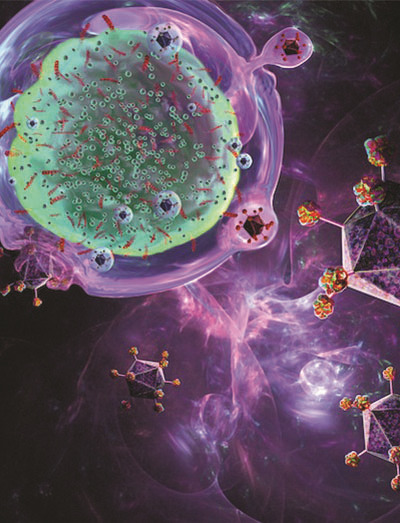"توسعه و ادامهی توسعهی سلولهای T با گیرندهی آنتیژن کایمریک (CAR-T) به طور قابل ملاحظهای در بین بیماران متفاوت است. با این حال، مکانیسمهای موثر در نتایج بالینی و تنوع بیمار به خوبی تعریف نشدهاند. در این تحقیق، یک توصیف ریاضی از پاسخهای سلولهای T توسعه یافته است که تبدیل حالتهای سلول T خاطره، سلول T اثرگذار و سلول T غیرفعال شده به طور هماهنگ توسط درگیری آنتیژن تومور تنظیم میشود. مدل با استفاده از دادههای بالینی از محصولات CAR-T در بیماریهای خونی مختلف آموزش دیده شده و تفاوتهای سلولی در نرخ تبدیل سلولهای خاطره و قدرت سایتوتوکسیک سلولهای اثرگذار به عنوان تعیینکنندههای اصلی پاسخ بالینی شناسایی شدهاند. با استفاده از یک جریان کاری یادگیری ماشین، نشان داده شده است که تفاوتهای محصولی میتوانند با دقت نتایج بیمار را بر اساس ژنومهای پیش از ورود پیشبینی کنند و تغییرات فارماکولوژیک اضافی از تعاملهای سلولی با تومور بیمار ناشی میشوند. ما متوجه شدیم که transcriptional signature (ژنهایی که تغییرات بیانی قابل ملاحظهای دارند) بهتر از ایمونوفنوتایپ سلولهای T در پیشبینی پاسخ بالینی برای دو محصول CAR-T هدفمند به CD19 در سه نشانه، امکان مرحله جدیدی از توسعهی محصولات CAR-T پیشبینی شونده را فراهم میکند."
Abstract
Chimeric antigen receptor T cell (CAR-T) expansion and persistence vary widely among patients and predict both efficacy and toxicity. However, the mechanisms underlying clinical outcomes and patient variability are poorly defined. In this study, we developed a mathematical description of T cell responses wherein transitions among memory, effector and exhausted T cell states are coordinately regulated by tumor antigen engagement. The model is trained using clinical data from CAR-T products in different hematological malignancies and identifies cell-intrinsic differences in the turnover rate of memory cells and cytotoxic potency of effectors as the primary determinants of clinical response. Using a machine learning workflow, we demonstrate that product-intrinsic differences can accurately predict patient outcomes based on pre-infusion transcriptomes, and additional pharmacological variance arises from cellular interactions with patient tumors. We found that transcriptional signatures outperform T cell immunophenotyping as predictive of clinical response for two CD19-targeted CAR-T products in three indications, enabling a new phase of predictive CAR-T product development.









